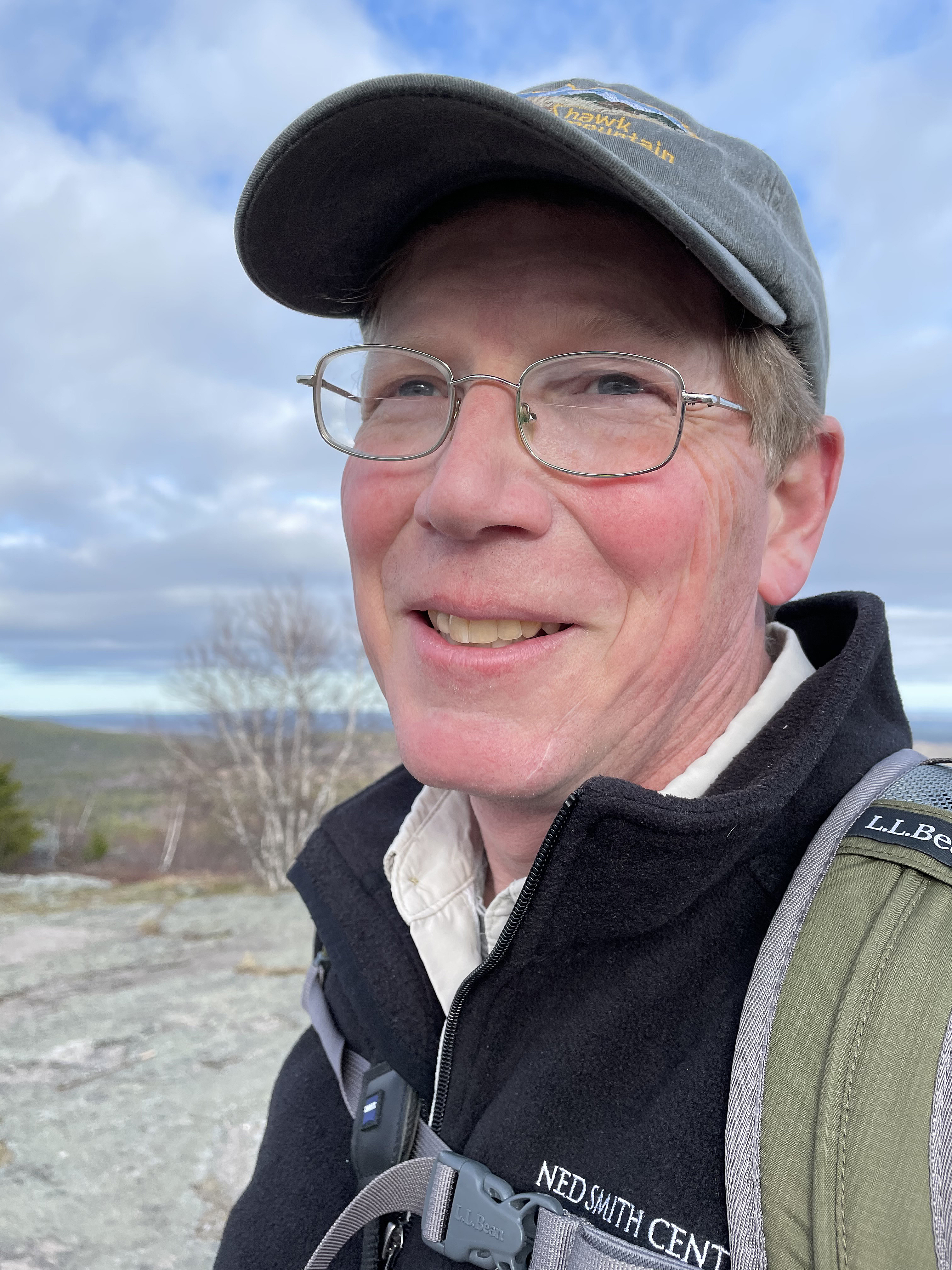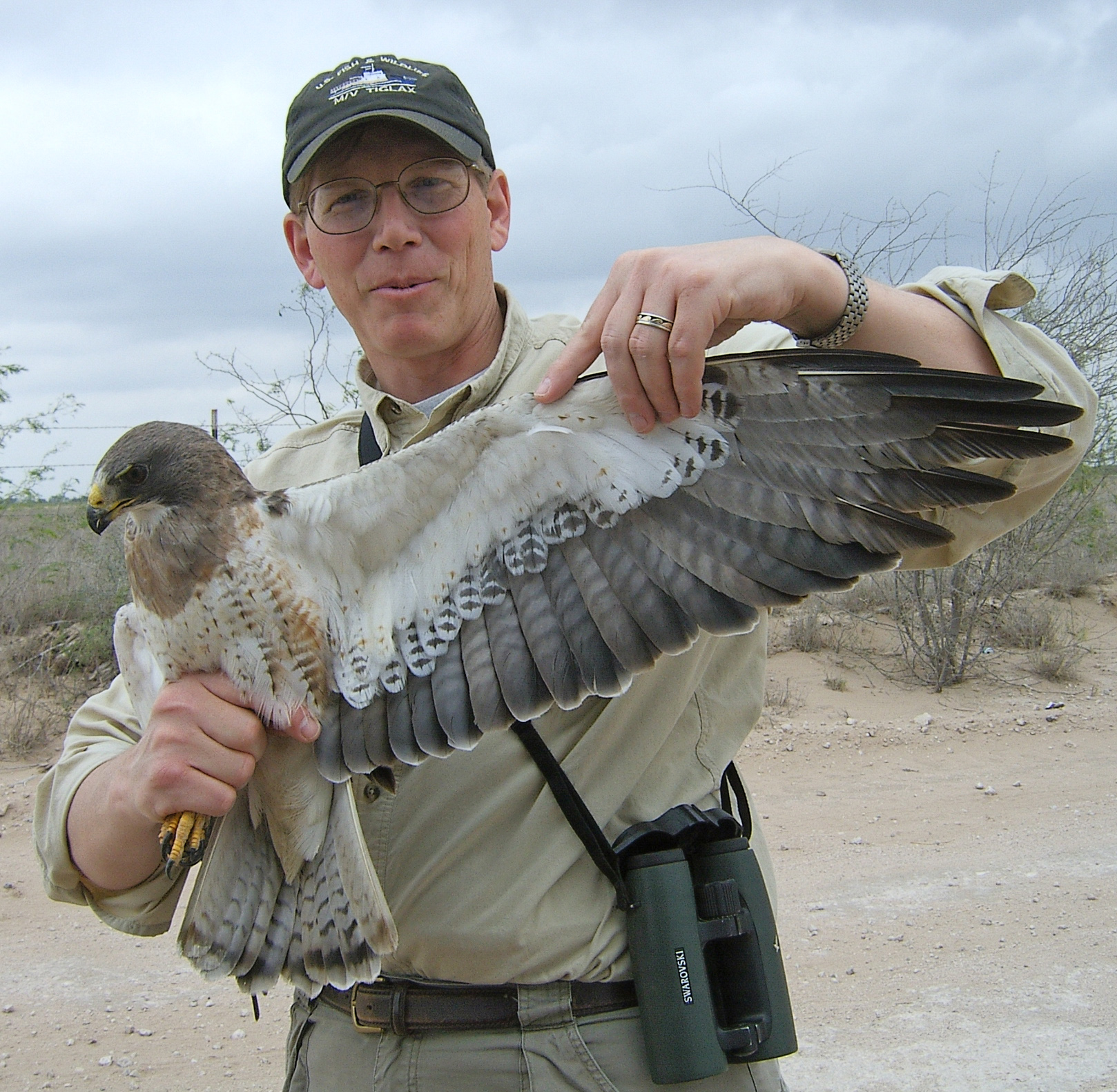Born in 1959, Scott Weidensaul (pronounced "Why-densaul") has lived almost all of his life among the long ridges and endless valleys of the Appalachian Mountains, a landscape that has defined much of his work.
 ©Amy WeidensaulHis writing career began in 1978 with a weekly natural history column in the local newspaper, the Pottsville Republican in Schuylkill County, Pennsylvania, where he grew up. In later years he wrote long-running columns for the Philadelphia Inquirer and Harrisburg Patriot-News.
©Amy WeidensaulHis writing career began in 1978 with a weekly natural history column in the local newspaper, the Pottsville Republican in Schuylkill County, Pennsylvania, where he grew up. In later years he wrote long-running columns for the Philadelphia Inquirer and Harrisburg Patriot-News.
Weidensaul has written more than 30 books, including his widely acclaimed Living on the Wind: Across the Hemisphere with Migratory Birds (North Point 1999), which was a finalist for the 2000 Pulitzer Prize. His newest book, A World on the Wing: The Global Odyssey of Migratory Birds (W.W. Norton, U.S.; Picador, U.K.) is a New York Times bestseller that has been widely translated for foreign editions.
Earlier books include The First Frontier: The Forgotten History of Struggle, Savagery and Endurance in Early America (Houghton Mifflin Harcourt 2012); Return to Wild America: A Yearlong Search for the Continent's Natural Soul (North Point 2005); and Of a Feather: A Brief History of American Birding (Harcourt 2007).
Weidensaul's writing has appeared in dozens of publications, including Audubon, Living Bird, Bird Watcher's Digest and National Wildlife, among many others. He lectures widely on conservation and nature, and directs ornithological programs for National Audubon's famed Hog Island Center on the coast of Maine.
In addition to writing about wildlife, Weidensaul is an active field researcher whose work focuses on bird migration. He is a co-director of Project Owlnet, a collaborative effort among  ©Bill Clarrknearly 125 banding and research stations across North America studying owl migration, and for more than 25 years he has directed a major effort to study the movements of northern saw-whet owls, one of the smallest and least-understood raptors in North America.
©Bill Clarrknearly 125 banding and research stations across North America studying owl migration, and for more than 25 years he has directed a major effort to study the movements of northern saw-whet owls, one of the smallest and least-understood raptors in North America.
Weidensaul co-founded Project SNOWstorm, which uses cutting-edge tracking technology to study snowy owls, and is a founder of the Critical Connections project, which is tracking the migration of birds that breed on National Park lands in Alaska. He is also part of a continental effort to understand the rapid evolution, by several species of western hummingbirds, of a new migratory route and wintering range in the East. He co-founded the Northeast Motus Collaboration, which created a network of more than 150 automated telemetry receivers across the mid-Atlantic region and New England to track the movements of bat, insects and small birds.
Scott Weidensaul is a Fellow of the American Ornithological Society. He and his wife Amy now live in the northern Appalachians of New Hampshire.
